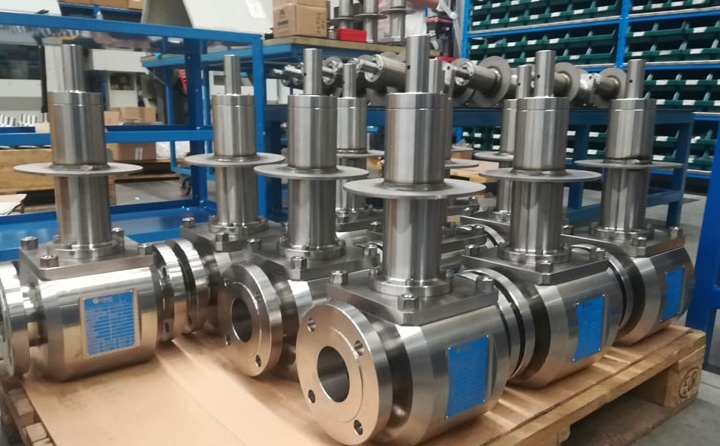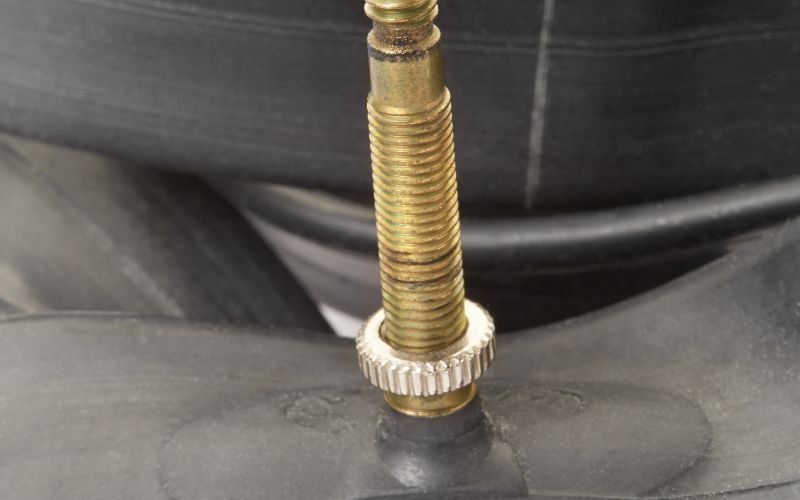
Welcome to our blog post all about forged steel ball valves! If you’re in the market for a valve that is durable, reliable, and able to handle high-pressure applications, then you may want to consider using a forged steel ball valve. These types of valves are commonly used in industries such as oil and gas, chemical processing, and power generation. In this article, we’ll dive deeper into what forged steel ball valves are, how they work, their advantages and disadvantages, how to select the right one for your needs. So grab a cup of coffee or tea and let’s get started!
What are Forged Steel Ball Valves?
Forged steel ball valves are a type of valve that utilizes a floating ball to control the flow of liquids or gases. The ball is held in place by two seats, which seal against it when the valve is closed. When the valve is open, the fluid can pass through around the sides of the ball.
These types of valves are made from forged steel, which means that they are created under intense pressure and heat using high-quality materials. This makes them highly durable and resistant to wear and tear.
Forged steel ball valves come in various sizes and shapes depending on their intended application. They may have either a full port or reduced port design, with full-port models allowing maximum flow capacity while reduced port designs limit flow rates but offer higher-pressure ratings.
Forged steel ball valves are an excellent choice for applications where high reliability, durability, and safety are crucial factors. With proper maintenance, they can provide years of trouble-free service even in harsh conditions that might cause other types of valves to fail quickly.
How to do Forged Steel Ball Valves Work?
Forged steel ball valves have a simple yet effective design that allows them to control the flow of fluids and gases through pipes. The valve consists of a spherical closure unit, which is also called the ball, and two seats that hold the ball in place.
When the handle or actuator turns the stem, it rotates the ball inside its chamber. As the ball moves, it either aligns with or blocks off ports in each seat. This action controls how much fluid can pass through and into what direction.
One advantage of using forged steel for these valves is their durability. Forged steel has superior strength compared to other materials such as cast iron or brass. This means that they can withstand higher pressure and temperatures without warping or cracking.
Another reason why forged steel ball valves are ideal for industrial applications is because they have low friction coefficient between their parts. This reduces wear on valve components over time while ensuring smooth operation despite frequent use.
Forged steel ball valves work by providing an efficient way to regulate fluid flow while being durable enough to last for years under harsh conditions.
Advantages of Forged Steel Ball Valves
Forged steel ball valves have several advantages that make them a popular choice in many industries. Firstly, they are incredibly durable and can withstand high levels of pressure and temperature. This is because the valve body is made from forged steel which has been heated and shaped to create a solid piece with no weak points.
Another advantage of forged steel ball valves is their resistance to corrosion. This makes them ideal for use in environments where exposure to chemicals or harsh weather conditions could cause damage to other types of valves.
In addition, forged steel ball valves are easy to operate, requiring only a quarter turn of the handle to fully open or close. This ensures quick response times in emergency situations where time is critical.
Forged steel ball valves also offer excellent flow control, allowing for precise regulation of fluid or gas flow rates through pipelines. They provide smooth operation with little friction between the moving parts resulting in less wear over time.
Forged steel ball valves are cost-effective compared to other types of industrial-grade valves. Their durability and low maintenance requirements make them an affordable investment that will last for years without needing costly repairs or replacements.
There’s no doubt that forged steel ball valves offer numerous benefits when it comes to controlling fluids and gases in various applications across different industries.
Disadvantages of Forged Steel Ball Valves
While forged steel ball valves have many advantages, it’s important to consider their disadvantages as well. One disadvantage is the cost – these valves tend to be more expensive than other types of valves. Additionally, they can be heavier and bulkier than other valve options, which may not work for all applications.
Another potential issue with forged steel ball valves is that they can experience leakage if not properly installed or maintained. This is because the seal around the ball can wear down over time or become damaged during installation.
It’s also worth noting that while these valves are generally durable and long-lasting, they may not hold up as well in certain environments. For example, exposure to high temperatures or corrosive substances could potentially cause damage to a forged steel ball valve over time.
Some users find that the design of a forged steel ball valve makes it hard to repair if something does go wrong. Instead of being able to replace individual components within the valve, you may need to replace the entire unit if there’s an issue.
While these disadvantages shouldn’t necessarily dissuade you from considering a forged steel ball valve for your application, it’s important to weigh them against the benefits before making a final decision.
How to Select the Right Forged Steel Ball Valve
When it comes to selecting the right forged steel ball valve for your needs, there are several factors that you should consider. First and foremost, you need to determine the pressure and temperature requirements of your application. This will help ensure that the valve is able to withstand the conditions it will be exposed to.
Another important factor is the size of the valve. You’ll want to choose a valve that is appropriately sized for your system in order to ensure optimal performance. It’s also important to consider any special features or options that may be required for your specific application.
In addition, you should take into account any industry standards or regulations that apply in your area. For example, certain industries may require valves with specific certifications or approvals.
It’s always a good idea to consult with an experienced supplier or manufacturer when selecting a forged steel ball valve. They can provide valuable insight and guidance based on their expertise and experience in working with similar applications.
Taking the time to carefully evaluate all of these factors can help ensure that you select a high-quality forged steel ball valve that meets all of your needs and delivers reliable performance over time.
Conclusion
To sum it up, Forged Steel Ball Valves are a reliable and durable choice for controlling the flow of liquids in various applications. They offer many advantages over other types of valves, including their excellent resistance to high pressure and temperature.
When selecting a Forged Steel Ball Valve, you should consider factors such as the type of fluid being transported, system pressure and temperature requirements, valve size and end connection options.
If you’re looking for a quality valve that can handle demanding conditions with ease while providing long-lasting performance, then a Forged Steel Ball Valve is an excellent option to consider. With proper maintenance and care, this type of valve can provide years of trouble-free service.





